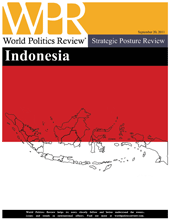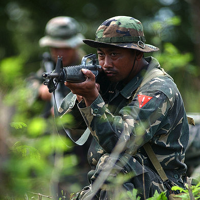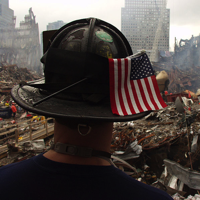Radical cleric and wanted terrorist Anwar al-Awlaki was killed Friday in Yemen in what news reports say was a coordinated air strike by the U.S. Central Intelligence Agency. This U.S. government-funded Voice of America report takes a look at the life of the American citizen who became a prominent al-Qaida figure.
Terrorism Archive
Free Newsletter

An archipelago of 17,000 islands stretching 3,000 miles from east to west, Indonesia sits astride some of the world’s most important sea lanes of communication. Its 240 million people make it the world’s fourth-most-populous state and third-largest democracy, and with 88 percent of its population Muslim, Indonesia is home to the world’s largest Muslim community. Indonesians believe that their country’s size, strategic location and domestic achievements entitle it to a leadership role in global affairs, and that case is strengthened by the country’s experience with various transnational threats: Indonesia faces homegrown and transnational terrorism, is the world’s fourth-largest emitter of […]

In February 2002, U.S. Special Forces arrived in southern Philippines, hot on the trail of various Islamic organizations that had taken sanctuary in Mindanao — including some that had allegedly relocated there from Afghanistan after the 2001 U.S. invasion. The 2002 deployment marked the opening of the so-called Second Front in the Global War on Terror, which would go on to include Indonesia. A decade later, assessing the results of America’s post-Sept. 11 involvement in the region depends on which perspective one examines it through. The U.S. response, though multifaceted, has been largely characterized by its support for the Philippine […]

Since I was at the Pentagon on Sept. 11 and saw Flight 77 hit the building, the 10th anniversary of the attack naturally causes me to reflect on how much progress we have made in preventing another such cataclysm during the past decade as well as on the challenges that remain for preventing one in the future. Two issues immediately come to mind: further strengthening the Department of Homeland Security and considering how the United States might reduce the high level of anti-Americanism that persists in much of the world. The mere creation of the Department of Homeland Security (DHS) […]
I had the pleasure of participating in France 24’s panel discussion program, The World This Week, on Friday. The program focused on the impact of Sept. 11 on America and the world over the past decade. The other guests were Ahmed Rashid, Newsweek’s Christopher Dickey, the IHT’s Eric Pfanner, Nooshabeh Amiri and France 24’s Loick Berrou. Part I can be found here. Part II can be found here. I was especially struck by Eric Pfanner’s observation that this is the first Sept. 11 anniversary where we can consider its impact from the perspective of historic closure. The anniversary has already […]

The 10th anniversary of the Sept. 11 terrorist attacks has garnered America almost as much schadenfreude from the world as the original events did. Back in 2001, the line was that we had it coming to us for lording it over the world since the Cold War’s end. Today, it takes the form of writing off our alleged “hegemony” in light of the shifts in global power over the intervening decade, a claim that is as absurd the previous one was insulting. Naturally, the Chinese are celebrated as our presumed replacement. So, as always throughout our history as a superpower, […]
In thinking about the ways in which Sept. 11 and our responses to it changed America and the world, it’s important to remember that some of its impact, and perhaps the most historically significant aspects of that impact, may not have entirely emerged yet. In August 1945, for instance, while the advent of radar, jet technology and nuclear weapons were plainly evident, it would have been close to impossible to foresee the way in which the war effort, both domestically and in theater, would go on to inform the black civil rights movement and women’s liberation movement 20-25 years later. […]

Editor’s note: This is the first in a two-part series on the impact of Sept. 11 on U.S. foreign policy. Part I examines the militarization of U.S. foreign policy following Sept. 11. Part II will examine ways to reverse this trend. On Sept. 11, 2001, nearly 3,000 Americans were killed in the single deadliest terrorist attack in American history — the work, not of a foreign army, but of al-Qaida, a nonstate actor. The U.S. wasted little time in responding. The Taliban government in Afghanistan that had provided safe haven for the terrorist group was quickly deposed by a combination […]

In two recently leaked voice recordings, former Turkish Chief of General Staff Gen. Isik Kosaner is heard commenting about the ongoing “Sledgehammer” case, in which several Turkish military officers have been accused of plotting a coup. On the tapes, Kosaner also bluntly questions the effectiveness of the Turkish armed forces in their fight against the separatist Partiya Karkeren Kurdistan (PKK), labeled as a terrorist group by Turkey, the European Union and the U.S. Critics of the military’s traditionally strong role in Turkish politics immediately highlighted the news, speculating on Kosaner’s integrity and mental health, the military’s alleged hidden political agenda […]
